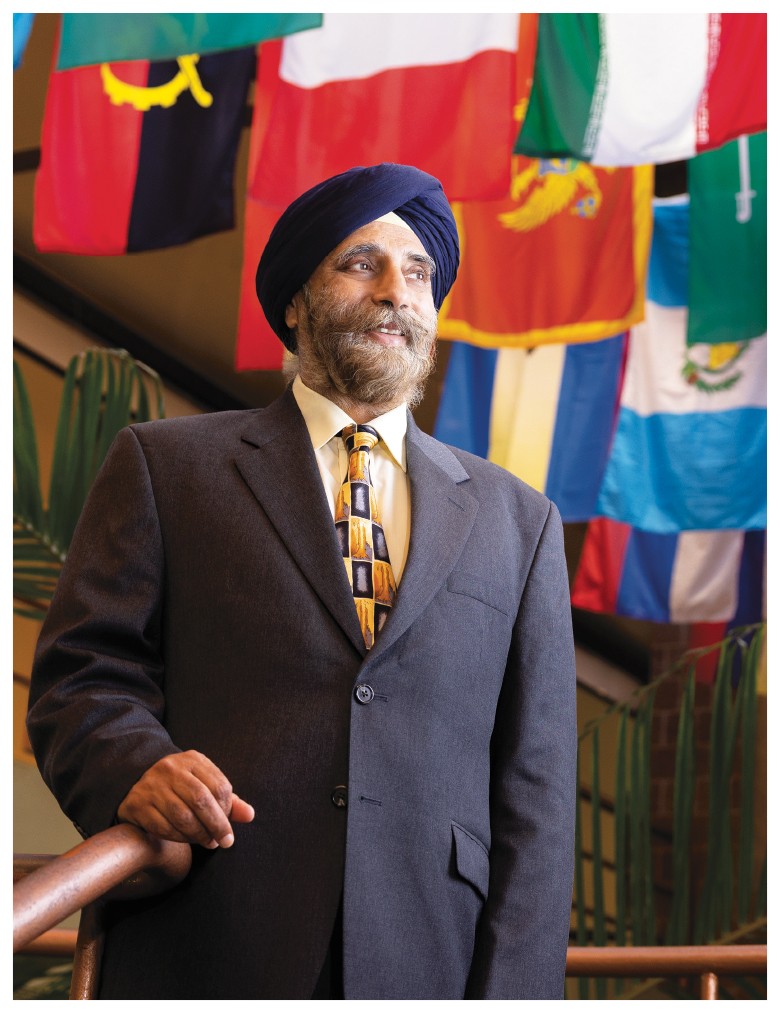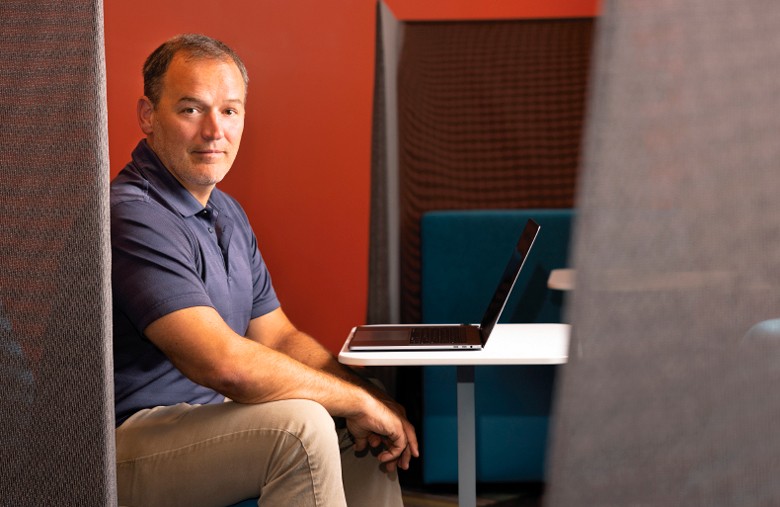Pritpal Singh, PhD
Professor of Electrical and Computer Engineering

Pritpal Singh, PhD, has impacted the lives of hundreds of thousands of people in developing countries worldwide through his work as a humanitarian engineer over the past 40 years. Recognizing his innovative and meritorious contributions to advancing engineering education, the International Federation of Engineering Education Societies selected Dr. Singh to receive the prestigious 2022 Duncan Fraser Global Award for Excellence in Engineering Education.
An expert in renewable energy systems and sustainable engineering, Dr. Singh is a dynamic scholar, educator and inventor who has facilitated educational workshops on several continents, produced more than 100 conference and journal publications, and secured seven US patents.
“I’ve always had an interest in working with underserved communities,” says Dr. Singh, professor of Electrical and Computer Engineering. An impassioned believer in using his expertise to address societal challenges, he’s worked with students to develop high-impact technologies that have improved quality of life in some of the farthest reaches of the globe.
In support of this work, he’s received millions of dollars in funding from federal agencies, international humanitarian aid organizations like UNICEF, nonprofits and professional organizations alike. The outcomes have been transformative—whether it’s a telehealth system that improves health care for rural Nicaraguans or solar disinfection methods that expand access to clean drinking water in Ecuador.
“My goal is to build capacity by empowering local communities to address local problems,” he explains. “One of the most successful ways I’ve found to do that is working with local educators—because they understand the needs and the culture, and they have the technical capabilities to develop and implement solutions with the local community.”
To that end, he’s shared his expertise through countless workshops on renewable energy and entrepreneurship to audiences ranging from professors at major US universities to local high school teachers and college educators in remote African villages. And, in spring 2023, he will expand on those efforts teaching and researching as a Fulbright Scholar in Ecuador.
Building on an established partnership he has with the university Escuela Superior Politécnica del Litoral (ESPOL), he will teach a course on the implementation and commercialization of sustainability-focused technologies as well as researching the potential of renewable energy on the neighboring Galapagos Islands.
REAL-WORLD IMPACT
The Power of Connections
Although the Galapagos Islands are one of the world’s top ecological tourist destinations, the local community has faced significant challenges with limited internet connectivity, which has prevented students and educators across the four inhabited islands from accessing much-needed resources.
In 2018, Dr. Singh embarked on an ambitious project with a team of Villanova Electrical and Computer Engineering students: to develop a local intranet system that would connect all five schools on the island of San Cristobal, allowing them to access shared educational materials.
Not only did their project succeed—it evolved into the Community Education Network, a local intranet system that connects 7,300 students from 21 schools scattered across all four inhabited islands to a wealth of free, shared resources. A collaboration with Ecuador’s Ministry of Education, Ecuadorian university ESPOL and several local partners, the network launched this fall, marking a major milestone in transforming educational access for the Galapagos Islands.

Read the next story
Brett Frischmann, JD
Charles Widger Endowed University Professor in Law, Business and Economics
